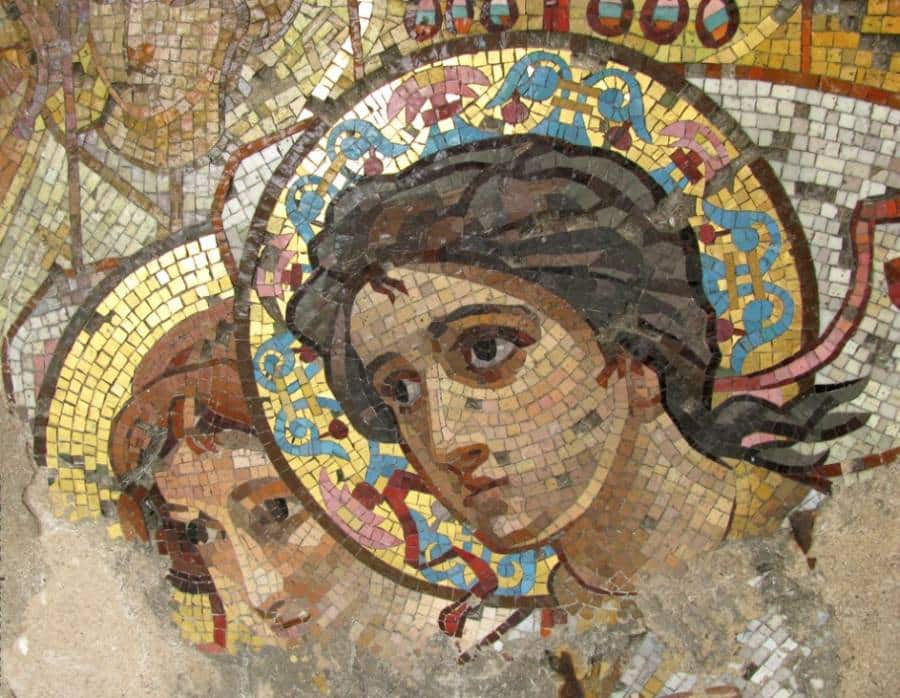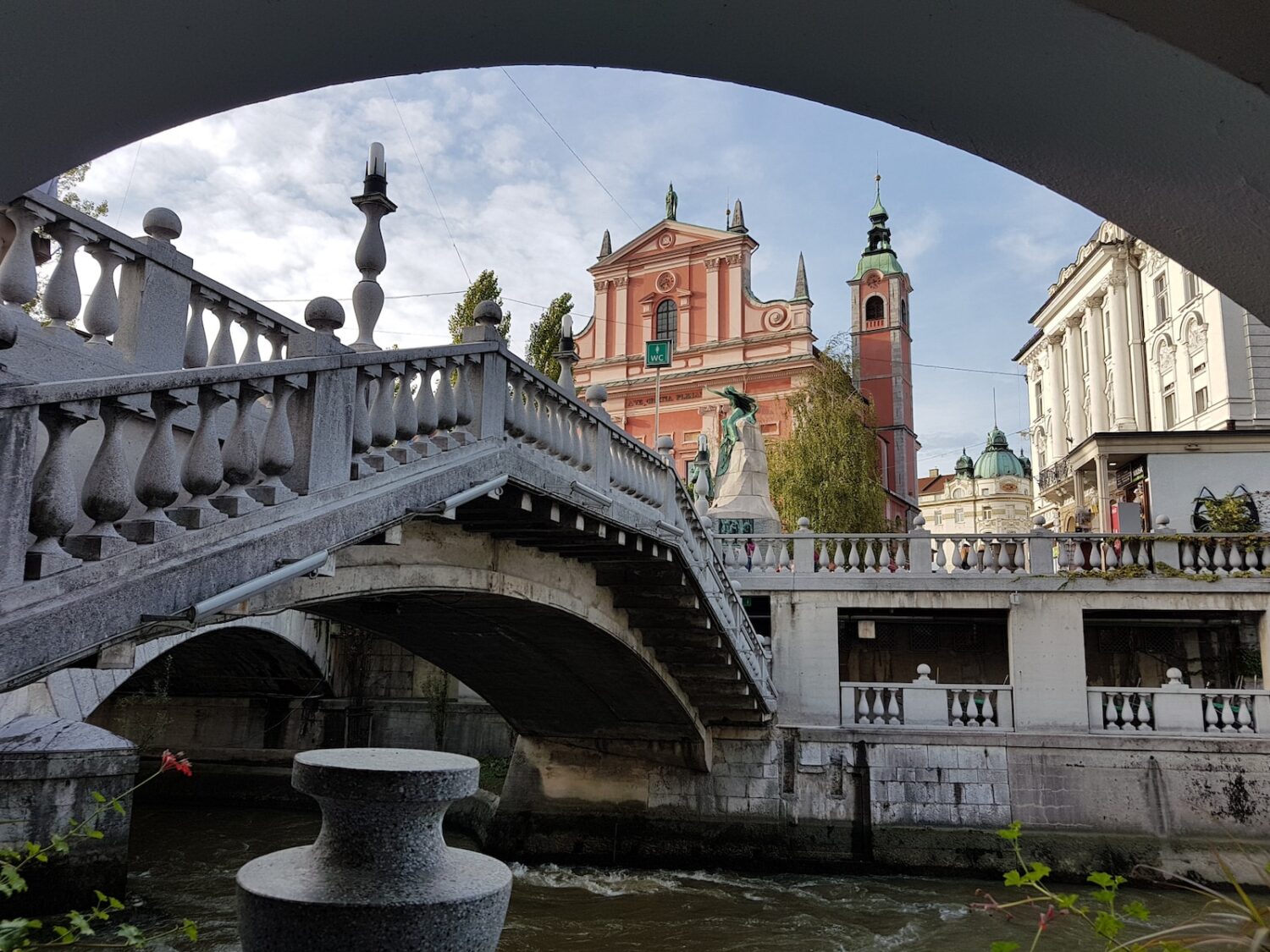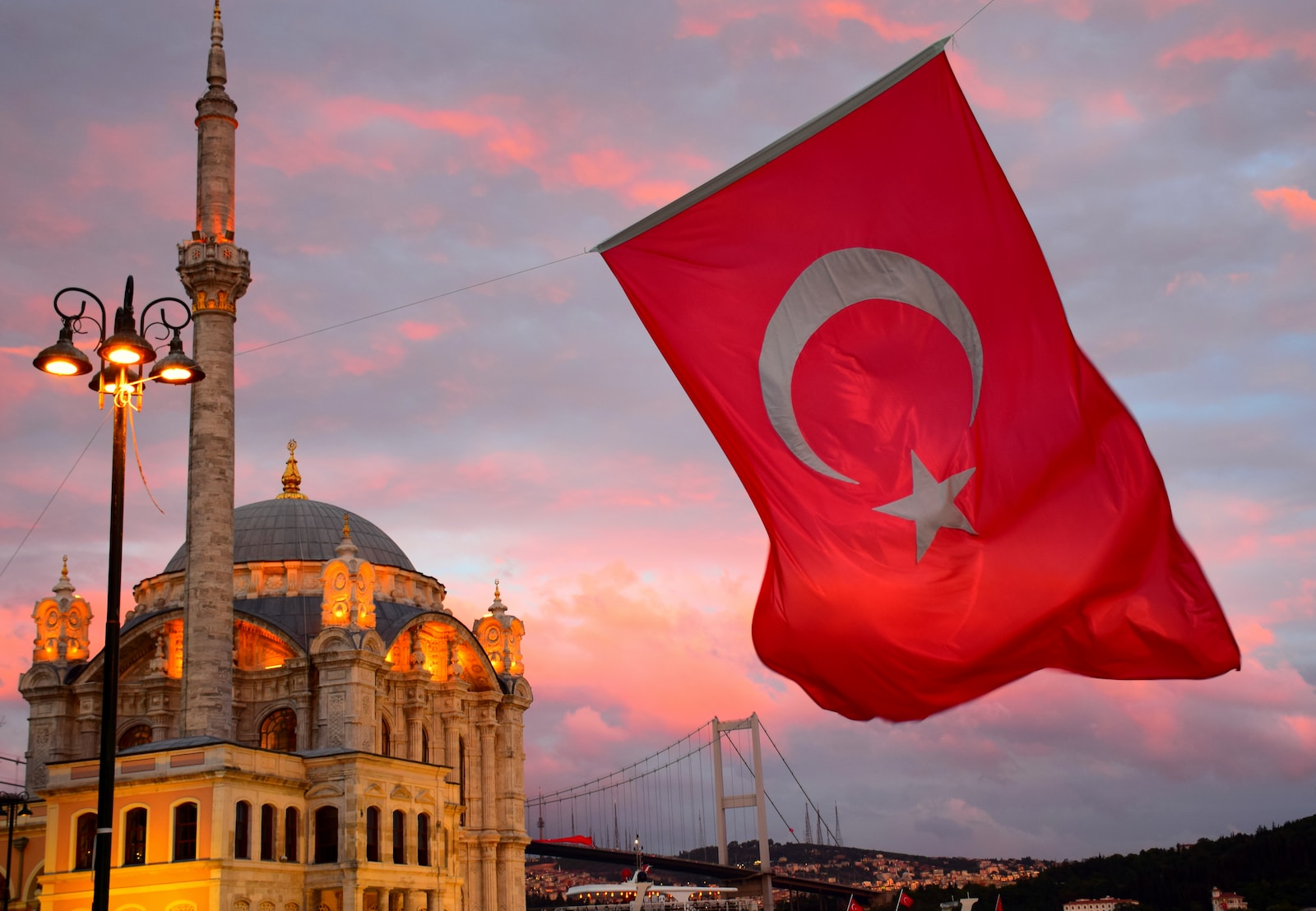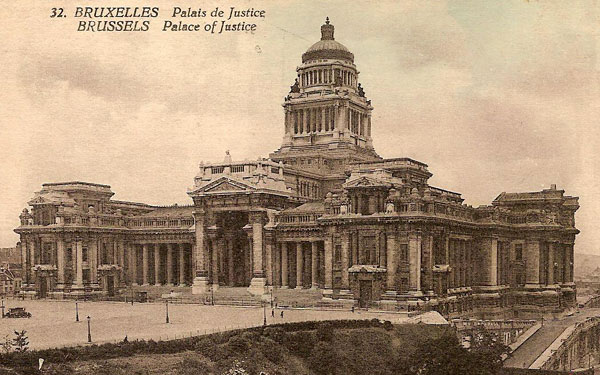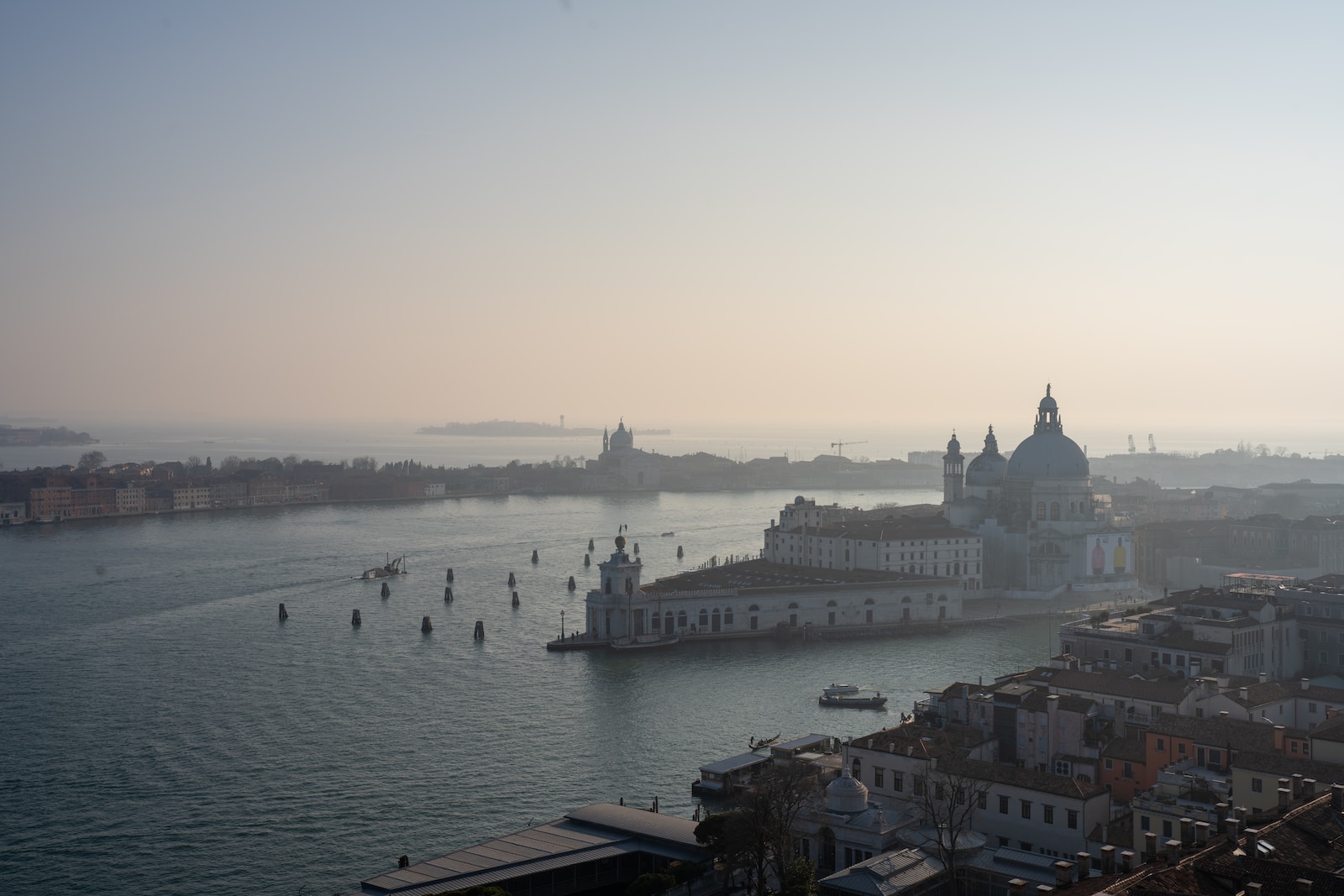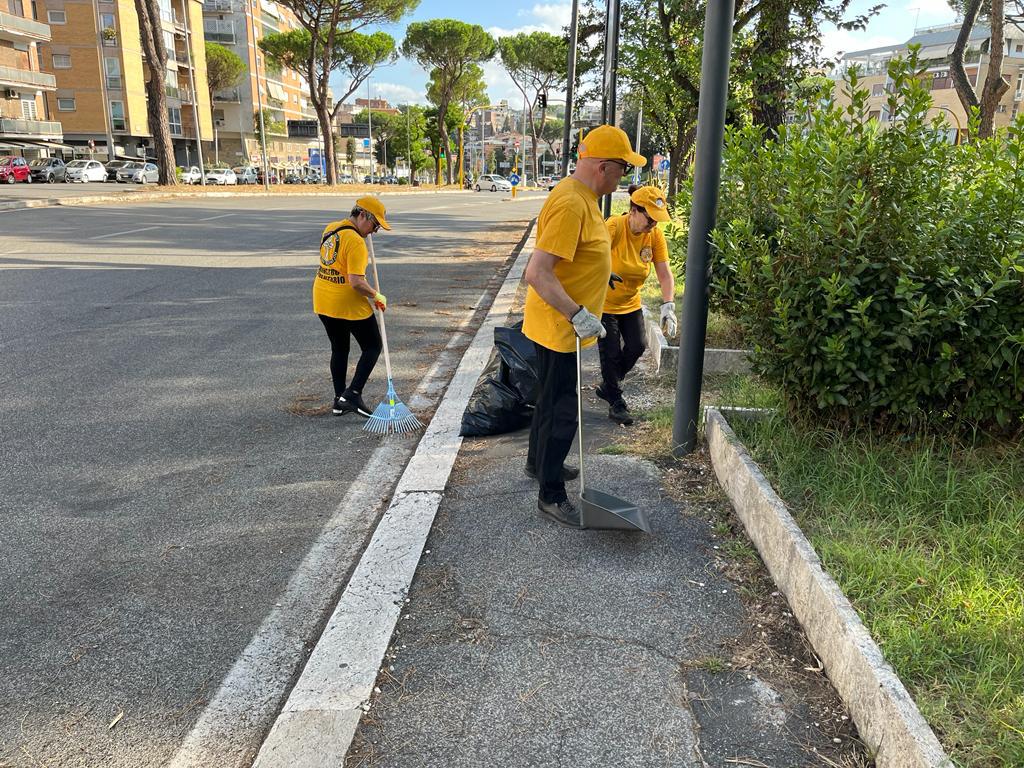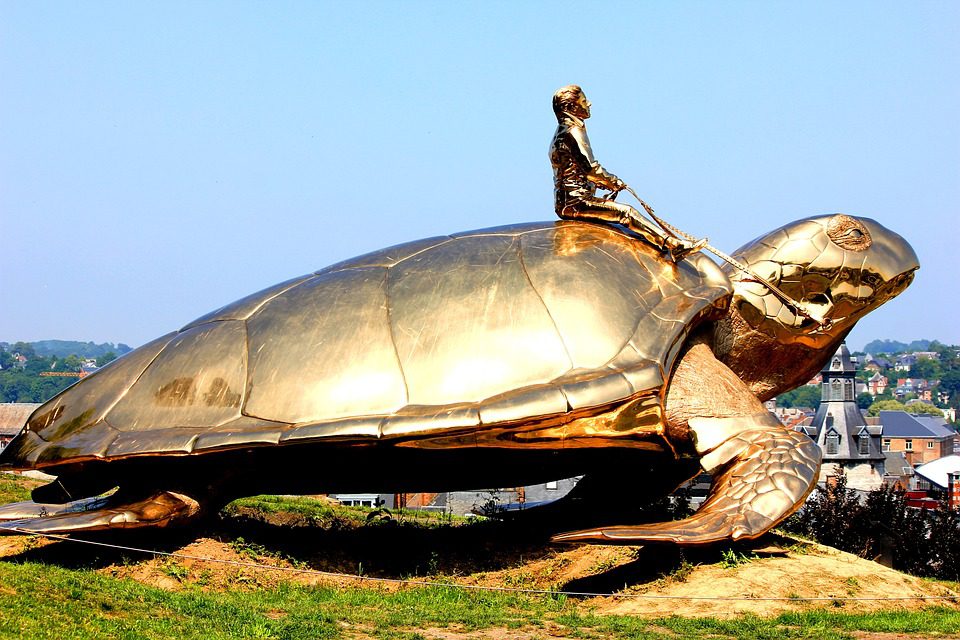Synagogues in this verse should not be understood as “assemblies,” but synagogues. To the boasting “in the synagogues” is added the boasting “in the streets”. The purpose of the hypocritical almsgiving is clearly stated: “to glorify them” (hypocrites) “people”. This means that through charity they wanted to achieve their own and, moreover, selfish goals. They were guided in their charity not by a sincere desire to help their neighbor, but by various other selfish motives, a vice inherent not only in Jewish hypocrites, but in general hypocrites of all times and peoples.
The usual goal of such charity is to gain confidence from the strong and rich and to receive rubles from them for a penny given to the poor. It can even be said that there are always few true, completely non-hypocritical benefactors. But even if no selfish goals could be achieved with the help of charity, then “fame”, “rumour”, “famousness” (the meaning of the word δόξα) are in themselves a sufficient goal of hypocritical charity.
The expression “they receive their reward” is understandable enough. The hypocrites seek rewards not from God, but first of all from people, they receive it and should only be content with it. Exposing the bad motives of the hypocrites, the Savior at the same time points to the futility of “human” rewards.
For life according to God, for the future life, they have no meaning. Only the person whose horizons are limited by real life appreciates earthly rewards. Those who have a broader outlook understand both the futility of this life and earthly rewards. If the Savior said at the same time: “Truly I say to you,” then by this he showed His true penetration into the secrets of the human heart.
Matthew 6:3. With you, when you do almsgiving, let your left hand not know what your right hand is doing,
Matthew 6:4. so that your charity may be in secret; and your Father, who sees in secret, will reward you openly.
In order to explain these verses, it must be remembered that the Savior does not make any prescriptions or give any instructions regarding the very methods of charity. It can no doubt be expressed in a thousand different ways, according to convenience and circumstances. Someone said that a deed done for the benefit of neighbors, or a word, chores, and so on, are just as good a deed for them as material alms in the form of kopecks, rubles, and provisions for life. The Savior points not to the ways of charity, but to what makes it true and pleasing to God. Charity must be a secret, and a deep secret.
“But when you do alms, don’t let your left hand know what your right hand is doing.” But even the most open, wide-ranging charity does not contradict the teachings of Christ, if it is all imbued with the spirit of secret charity, if the philanthropist who is open and visible to people has fully assimilated or is trying to assimilate the methods, conditions, motives, and even habits of the secret benefactor.
In other words, the impetus for charity should be an inner, sometimes little noticeable even to the benefactor himself, love for people, as their brothers in Christ and children of God. There is no need for a benefactor if his cause comes out. But if he takes care of it, then his business loses all value. Explicit charity has no value without the intention of keeping a secret.
This will be easier and clearer from the further interpretation of prayer. Now let’s say that neither Christ himself nor His apostles prevented obvious charity. In the life of Christ, there are no cases when He Himself would provide any financial assistance to the poor, although the disciples who followed the Savior had a cash box for donations (John 12:6, 13:29).
In one case, when Mary anointed Christ with precious ointment and the disciples began to say: “why not sell this ointment for three hundred denarii and distribute it to the poor”? The Savior even made, apparently, an objection to this ordinary charity, approved the act of Mary and said: “You always have the poor with you” (John 12:4–8; Matt. 26:6–11; Mk. 14:3–7). However, no one will say that Christ was a stranger to all charity.
His charity is characterized by the same words that were spoken by the apostle Peter when he healed the lame from birth: “I have no silver and gold; but what I have, I give you” (Acts 3:1–7). The charity of the Apostle Paul is well known, he himself collected donations for the poor in Jerusalem, and his work was completely open. However, it is quite clear that such charity, although quite obvious and open, differed sharply in spirit from the charity of the hypocrites and did not aim at glorifying people.
Matthew 6:5. And when you pray, don’t be like the hypocrites who love in synagogues and on street corners, stopping to pray in order to appear before people. I tell you truly, they already receive their reward.
According to the best readings – plural – “when you pray, do not be like hypocrites, because they love to pray standing (ἑστῶτες) in synagogues and on street corners” and so on. In the Vulgate, the plural (“pray”) according to the Vatican Code, Origen, Chrysostom, Jerome and others. In the 2nd verse – the only thing – “when you do alms”; in the future, the 6th – “you” and so on.
This seemed incongruous to the scribes, and in many manuscripts they replaced the plural with the singular. But if “pray” and so on is correct, then the solution of the question why the Savior here changed the former and future singular to plural is extremely difficult, if not impossible. Different interpretations of “when you pray, don’t be” show that this difficulty was already felt in the deepest antiquity.
We can only say that speech is equally natural in both cases. It may also be that the plural is used for a stronger opposition to the following verse. You listeners sometimes pray like hypocrites; you, a true prayer book, and so on.
Considering the characteristics of the “hypocrites”, one can observe that the tone of speech is almost the same in verses 2 and 5. But μή (in “don’t blow”) refers generally to the future and prospective and is replaced in verse 5 by οὐκ (don’t be). Both in the first and in the second case, it is found “in the synagogues”, but the expression of the 2nd verse “on the streets” (ἐν ταῖς ῥύμαις) in the 5th verse is replaced “at the corners of the streets” (ἐν ταῖς γωνίαις τῶν πλατειῶν).
The difference is that ῥύμη means narrow and πλατεῖα means wide street. The word “glorified” (δοξασθῶσιν – were glorified) was replaced by the word “shown” (φανῶσιν). Otherwise, verse 5 is a literal repetition of the end of verse 2. If it can only be argued that verse 2 has nothing that corresponded to the then Jewish reality, but consists only of metaphorical expressions, then regarding verse 5 we can say that it contains a real (without metaphors) characterization of “hypocrites”, known from other sources.
Here you need to know first of all that both the Jews and later the Mohammedans had certain hours of prayer – the 3rd, 6th and 9th days according to our account 9th, 12th and 3rd. “And now a Mohammedan and a conscientious Jew, as soon as a certain hour strikes, perform their prayer, wherever they are” (Tolyuk). The Talmudic treatise Berakhot contains many prescriptions, from which it is clear that prayers were performed on the road and even despite the dangers from robbers.
There are, for example, such characteristics. “Once R. Ishmael and R. Elazar, the son of Azariah, stopped in one place, and r. Ishmael was lying, and r. Elazar stood. When it was time for the evening shem (prayer), r. Ishmael got up, and R. Elazar lay down ”(Talmud, translation of Pereferkovich, vol. I, p. 3). “Workers (gardeners, carpenters) read the shema while remaining on a tree or on a wall” (ibid., p. 8). In view of such characteristics, the stops of the hypocrites “at the corners of the streets” become quite understandable.
“Do not be” – in Greek it will be indicative (ἔσεσθε), not imperative. We have already encountered this usage (ἔστε never in the New Testament; see Blass, Gram. S. 204). The word “love” (φιλοῦσιν) is sometimes translated as “have a custom, habit”. But this word never has such a meaning in the Bible (Tzan). Standing (ἑστῶτες) is the usual position for prayer. There is no need to assume that the hypocrites prayed standing up precisely because of their hypocrisy and love for show, and that it is precisely for this that Christ rebukes them.
It contains a simple characterization that is not logically stressed. The purpose of praying on street corners was to “appear” (φανῶσιν) as praying. A vice inherent in all sorts of hypocrites and hypocrites, who often pretend to pray to God, but in fact – to people, and especially to the powerful of this world. The meaning of the last two phrases: “Truly I say to you” … “their reward”, the same as in the 2nd verse: they receive completely – this is the meaning of the word ἀπέχουσιν.
It should be noted that after the words “Truly I say to you” (as in verse 2), in some codices, “what” (ὅτι) is placed: “what they receive” and so on. The addition “what”, though correct, may be considered superfluous and not justified by the best manuscripts.
Matthew 6:6. But you, when you pray, go into your closet, and having shut your door, pray to your Father who is in the secret place; and your Father, who sees in secret, will reward you openly.
As in the teaching on almsgiving, so here too it is pointed out not to the methods of prayer, but to its spirit. To understand this, we must imagine a person shut up in his room and praying to the Heavenly Father. No one forces him to this prayer, no one sees how he prays. He can pray with or without words. Nobody hears these words. Prayer is an act of free, unconstrained and secret communication between man and God. It comes from the human heart.
Already in antiquity, the question was raised: if Christ commanded to pray in secret, then did He not forbid public and church prayer? This question was almost always answered in the negative. Chrysostom asks: “So what? In the church, says the Savior, one should not pray? – and answers: “It must and it must, but only depending on the intention with which. God everywhere looks at the purpose of works. If you enter an upper room and close the doors behind you, and do it for show, then the closed doors will not bring you any benefit … Therefore, even if you close the doors, He wants you to drive out vanity from yourself and close the doors of your heart before you close them. To be free from vanity is always a good deed, and especially during prayer.”
This interpretation is correct, although at first glance it seems to contradict the direct meaning of the Savior’s words. The latest exegetes explain this somewhat differently and quite witty. “If,” says Tsang, “almsgiving is, by its very nature, an open and related activity and therefore cannot be completely secret, then prayer, by its very essence, is the speech of the human heart to God. Therefore, for her, any abandonment of the public and not only is it not harmful, but then it is also protected from any admixture of extraneous influences and relations. The Savior did not consider it necessary to weaken the energies of His speech with petty warnings against unreasonable generalizations, such as, for example, the prohibition of all public prayer (cf. verse 9 et seq.; Matt. 18:19 et seq.) or in general any kind of prayer heard by others (cf. Mt. 11:25, 14:19, 26:39 et seq.).” In other words, secret prayer does not need any restrictions. The spirit of secret prayer can be present in open prayer.
The latter has no value without secret prayer. If a person prays in church with the same disposition as at home, then his public prayer will benefit him. This is not the place to discuss the meaning of public prayer in itself. The only important thing is that neither Christ nor His apostles denied it, as can be seen from the above quotations.
The shift from “you” in verse 5 to “you” can again be explained by a desire to reinforce the opposition of true prayer to the prayer of the hypocrites.
“Room” (ταμεῖον) – here any closed or locked room is understood. The original meaning of this word (more correctly ταμιεῖον) was – a pantry for provisions, storage (see Luke 12:24), then a bedroom (2 Kings 6:12; Eccl. 10:20).
Here we should pay attention to the general conclusion that Chrysostom makes when considering this verse. “Let us make prayers not with body movements, not with a loud voice, but with a good spiritual disposition; not with noise and uproar, not for show, as if in order to drive away your neighbor, but with all decency, contrition of heart and unfeigned tears.
Matthew 6:7. And while praying, do not say too much, like the pagans, for they think that in their verbosity they will be heard;
Again, a clear transition to speech on “you”. The example is now taken not from Jewish, but from pagan life. The whole explanation of the verse depends on the meaning we give to the words “do not say too much” (μὴ βατταλογήσητε; in the Slavic Bible – “do not talk too much”; Vulgatä: nolite multum loqui – do not talk too much). First of all, we note that determining the meaning of the Greek word βατταλογήσητε is important for determining the properties of true prayer. If we translate “do not talk much”, then it means that our (as well as Catholic and other) church services according to the teachings of Christ are superfluous due to their verbosity. If we translate “do not repeat”, then this will be a rebuke of the repeated use of the same words during prayer; if – “do not say too much”, then the meaning of Christ’s instruction will remain indefinite, because it is not known what exactly we should understand here by “superfluous”.
It is not at all surprising that this word has long occupied exegetes, all the more so since it is extremely difficult, because in Greek literature it is found independently only here, in the Gospel of Matthew, and in another sixth-century writer, Simplicius (Commentarii in Epicteti enchiridion, ed. F. Dubner. Paris, 1842, in cap. XXX, p. 91, 23). One might hope that with the help of this last one it will be possible to throw light on the meaning of the word being analyzed in Matthew.
But, unfortunately, in Simplicius the meaning of the word is as little clear as in Matthew. Firstly, Simplicius does not have βατταλογεῖν, as in the Gospel (according to the best readings), but βαττολογεῖν, but this is not of particular importance. Secondly, in Simplicius this word undoubtedly means “to chat”, “to idle talk” and, therefore, has an indefinite meaning. There is a whole literature about the word in question in the West. So much was said about this that the exegetical “wattalogy” even aroused ridicule. “Scientific interpreters,” said one writer, “are liable for the fact that they have wattologized so much about this word.”
The result of numerous studies was that the word is still considered “mysterious”. They tried to produce it on their own behalf Βάττος. Since tradition points to three different Watts, they tried to find out from which of them the word in question comes. In the History of Herodotus (IV, 153 et seq.), one of them is described in detail, who stuttered, and the word “wattalogia” was derived from him.
This opinion could be supported by the fact that Demosthenes was called in derision βάτταλος – a stutterer. Thus, the gospel word βατταλογήσητε could also be translated “do not stutter”, like pagans, if only the meaning of the speech and the context would allow it. The suggestion that the Savior here denounced paganism and any kind of “stuttering” is completely impossible and has now been completely abandoned.
Of the proposed productions, the best seems to be that this is the so-called vox hybrida, a mixture of different words, in this case Hebrew and Greek. The Greek that is part of this compound word is λογέω, the same as λέγω, meaning “to speak”. But as to which Hebrew word the first part of the expression is derived from, the opinions of exegetes differ. Some derive from the Jewish “bat” – to chat, it’s pointless to talk; others – from “batal” – to be idle, inactive, or from “betel” – not to act, stop and interfere. From these two words the word βατάλογος could be formed instead of βαταλόλογος, just as idolatra from idololatra. But in Hebrew there are not two “t”, as in Greek, but one.
In order to explain the two “t” used a rather rare word βατταρίζειν, which means “talk”, and thus got βατταλογέω Matthew 6:7. Of these two productions, the first should be preferred, on the ground that “l” is contained in the Greek λογέω (λέγω), and therefore for production there is no need to take this letter into account. If we derive from “bat” and λογέω, then the explanation of the word will be similar to that given by Chrysostom, considering βαττολογία – φλυαρία; this last means “idle chatter”, “trifles”, “nonsense”. This is how the word is rendered in Luther’s German translation: soltt ihr nicht viel flappern – you must not talk much.
In English: “do not make empty repetitions.” The only objection that can be made against this interpretation is that the Hebrew word “bata” already in itself contains the concept of idle talk, and it is not clear why the Greek λογέω, which also means “to catch”, is added, so that if the expression is literally translated into Russian, then it would take this form: “to idle talk – to catch”. But is it true that, as Tsang says, λογέω means exactly “to speak”? This verb in Greek appears only in compound words and means, like λέγω, to always speak meaningfully, according to a plan, with reasoning. To denote meaningless speaking, λαλεῖν is usually used.
It turns out something incongruous if we combine λογέω – to speak meaningfully with the Hebrew word “bata” – to speak meaninglessly. This difficulty can apparently be avoided if we give λογέω the meaning of thinking more than talking. This will give a clearer meaning to the verb in Mt. 6:7 – “do not think idlely”, or, better, “do not think idlely, like the Gentiles.” Confirmation of this interpretation can be found in the fact that, according to Tolyuk, among the ancient church writers “the concept of verbosity receded into the background and, on the contrary, prayers about the unworthy and indecent were put forward.”
Tolyuk confirms his words with a significant number of examples from patristic writings. Origen says: μὴ βαττολογήσωμεν ἀλλὰ θεολογήσωμεν, paying attention not to the process of speaking, but to the very content of the prayer. If, further, we pay attention to the content of the Lord’s Prayer, which, as can be seen from the meaning of the speech, was supposed to serve as a model for the absence of vattalogy, then we can see that everything unworthy, senseless, trifling and worthy of censure or contempt has been eliminated in it.
Thus, we come to the conclusion that in the word βαττολογεῖν, first of all, idle thought during prayer, idle speaking that depends on it, and, among other things, verbosity (πολυλογία) is condemned – this word is further used by the Savior Himself, and this, apparently, also has a meaning for explaining wattalogy.
It was said above that Christ now warns against imitating not hypocrites, but pagans. Considering this warning from the actual side, we find examples proving that in addressing their gods, the pagans were distinguished by both thoughtlessness and verbosity. Such examples can be found in the classics, but in the Bible this is confirmed twice. The priests of Baal “called on the name” of him “from morning until noon, saying: Baal, hear us!” (1 Kings 18:26).
The pagans in Ephesus, filled with rage, shouted: “Great is Artemis of Ephesus!” (Acts 19:28-34). However, it seems doubtful whether these cases can serve as an illustration of the multi-verb prayer of the pagans. Much closer is the general remark that verbosity was generally characteristic of the pagans and even had different names among them – διπλασιολογία (repetition of words), κυκλοπορεία (bypass), tautology and polyverb in the proper sense.
The multiplicity of gods prompted the pagans to talkatively (στωμυλία): the gods numbered up to 30 thousand. During solemn prayers, the gods had to list their nicknames (ἐπωνυμίαι), which were numerous (Tolyuk, [1856]). For the interpretation of this verse of the Gospel of Matthew, it would be completely sufficient for us if there were at least one clear case in paganism that confirms the words of the Savior; such a coincidence would be quite important.
But if there are many cases known to us, and, moreover, quite clear, then we come to the conclusion that the Savior accurately depicts the historical reality of His day. Protests against long and meaningless prayers are also found in the Bible (see Is.1:15, 29:13; Am.5:23; Sir.7:14).
Matthew 6:8. do not be like them, for your Father knows what you need before you ask Him.
The meaning of this verse is clear. “Them”, i.e. pagans. Jerome points out that as a result of this teaching of the Savior, heresy arose and a perverted dogma of some philosophers who said: if God knows what we would pray for, if He knows our needs before our requests, then in vain will we speak to Him who knows. To this heresy, both Jerome and other church writers answer that we do not tell God about our needs in our prayers, but only ask. “It’s another thing to tell someone who doesn’t know, it’s another thing to ask someone who knows.”
These words can be considered sufficient to explain this verse. One can only add, together with Chrysostom and others, that Christ does not hinder people’s persistent and intensified requests to God, as indicated by the parables of Christ about the poor widow (Luke 18:1–7) and the persistent friend (Luke 11:5–13).
Source: Explanatory Bible, or Commentaries on all the books of the Holy Scriptures of the Old and New Testament: in 7 volumes / ed. A. P. Lopukhin. – Fourth edition, Moscow: Dar, 2009 (in Russian).



